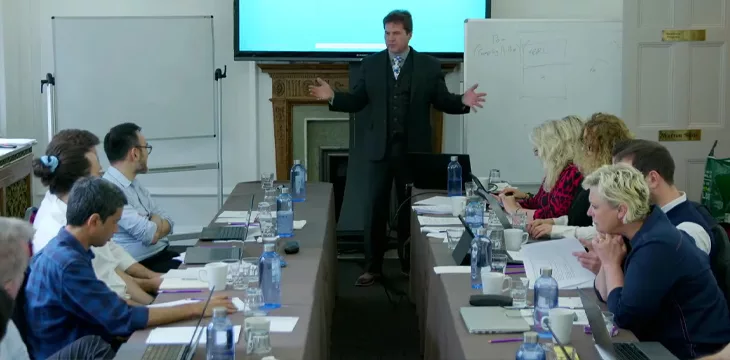|
Getting your Trinity Audio player ready...
|
“Supply Chain Management and Logistics – this is where EDI is really used most.” In fact, there are still many ways to perform these processes, and yes, some people still fax their orders and invoices. For them, it works. Business is always evolving, though, and eventually, everyone will need to move to more open and compatible supply chain systems to stay competitive. It’s best they use the most universal and efficient system possible—and that’s the topic of session #2 of The Bitcoin Masterclasses fifth season with Dr. Craig S. Wright.
When we say supply chain management, we mean everyone’s supply chain. An integrated system could open up markets for everyone, just as Amazon’s (NASDAQ: AMZN) marketplace and distribution network provides opportunities to independent sellers.
A customer who has to wait too long for a shipment often quits or never orders in the first place. That’s a lost opportunity cost. If you can receive ingredients and imported goods as fast as possible, you can sell them to end-buyers faster. So it’s in everyone’s interest to ship goods as fast as possible. This is common sense to anyone working in supply chain and logistics, but this doesn’t automatically create better processes.
Is there a demand for this? Yes, of course—even retail buyers these days will repeatedly click on a tracker link to see exactly where their delivery is, often in startling detail (even pizza shops have this nowadays). There will always be a demand for more efficiency and a need for more granular information. Tokenizing any relevant information about an item, or any stage of the shipping/supply chain process, and storing this token information on a scalable blockchain, enables almost anyone to have access to this information (if granted) and use it in various ways.
Perishable products, recalls, delays, you name it; any mishap can be sorted out faster with a more open and integrated system. Much of this second session is an audience-participation discussion of possible use cases in various industries, as usual, featuring many examples from Dr. Wright’s life and many others.
How do we enable people to use these tools? The best way is to make it as easy as possible. If people out there still use faxes to order and ship goods, they’re probably not eager to learn how to code. Dr. Wright again gives the example of the Bitcoin blockchain “becoming the plumbing,” the efficient infrastructure that fades into the background as developers build user-friendly tools.
“If we want plumbing, we have to make the pipes,” he says. For those seeing red flags about privacy concerns surrounding all this traceability, this session has answers for those as well. As we’ve mentioned before, data stored on the BSV blockchain can be compartmentalized and assigned different access levels. There’s no need for a large corporation to know everything about every customer they have (as much as they’d like it sometimes), and personally-identifying data can be kept separate from other relevant information.
“You make the APIs, and people can use them any way they want,” Dr. Wright says. “Is it easy to map fields to XBRL (eXtensible Business Reporting Language)? Yes, it is.” There are specialist buyers for specialist goods out there with not much liquidity, and even a large freight provider like Maersk could benefit from more liquidity by opening everything up. All it takes is someone to build these processes and approach a company (large or small) with a convincing blockchain case.
The session concludes with the same message as all the others in The Bitcoin Masterclasses series: Here are the ideas and the means. The rest is up to you to build.
You can watch the second session and the entire first day of the latest Masterclasses series with this link and any previous Bitcoin Masterclass seasons on the CoinGeek YouTube channel.
Watch: Supply Chain, Product Provenance & Blockchain at CoinGeek Zurich

 07-15-2025
07-15-2025 





